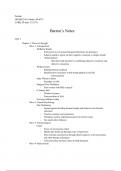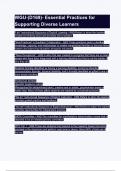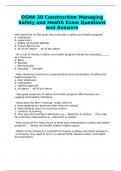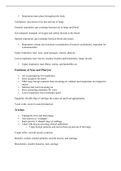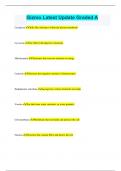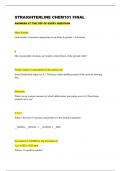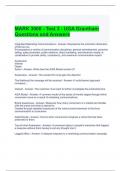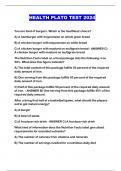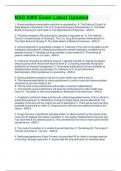Class notes
Barrrons AP Psychology Notes
This document includes all 9 units that are tested on the AP exam in great detail. It includes all of the psychologists that are present on the AP exam aswell as their theories/ areas of psychology. Unit 2 is simplified for easy understanding and includes images. The document is 55 pages and is a c...
[Show more]
